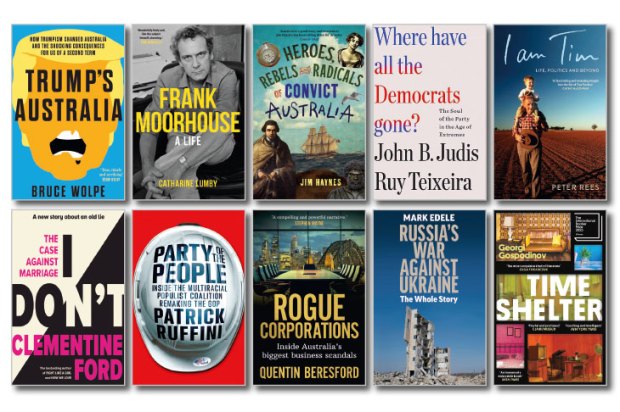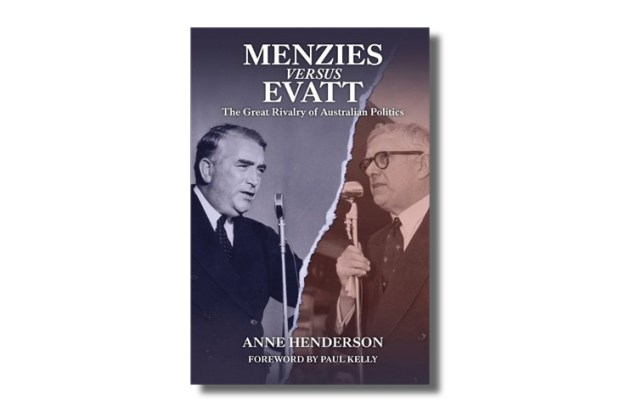It would have once been uncontroversial to suggest nations have characteristics that not only distinguish them from other countries, but that are also worth understanding — if not celebrating — especially by those who might wish to help guide those nations’ destinies along alternative paths.
But with the cultural aversion to all things ‘chauvinistic’, together with the post-modern turn towards deconstruction of all such ‘constructs’, discussion of national character has fallen out of favour. Interestingly, the unwillingness to treat the nation seriously as a social, economic, and political entity is shared across the political spectrum in Australia. Many on the Right feel this way because they are alienated from many of the core values that constitute our nation’s defining — and left-leaning equalitarian and collectivist — characteristics. But in democratic countries, ideas about the nation set the parameters of public discourse, and the nation is thus the ultimate political reality. For members of the Right to consider the nation an ‘imagined community’ in the pejorative sense of being fake is to simply wish away a whole host of political, economic, and social problems. Even worse is the tendency for the Right to cast a pessimistic eye over the nation’s established economic, social and political order, and decide it will be ever so. Refreshingly free of these constraints and limitations, however, is the new collection of essays edited by the distinguished ANU economist William Coleman. Only in Australia: The History, Politics and Economics of Australian Exceptionalism seeks to describe, explain and analyse the set of distinctive values and characteristics that, for better or worse, set Australia’s national culture apart from other countries.
That said, I am not sure I agree with Coleman’s contentious proposition in the introductory chapter that Australia’s reliance on the state is unique compared to other Anglosphere countries — the United States’ dependence on public debt and the UK’s immovable commitment to the NHS suggest otherwise. However, the book offers much more than comparative national history. The better description is an exercise in scholarly pamphleteering of sorts.
Fair to say that virtually all the (all male) authors are ideologically disposed towards the Right, and would generally support policies that would free up markets, de-regulate industries, and reduce the size of the state. Hence, many of the essays offer critiques of national policies that have deviated from those ideals, and are dominated by the antithetical precepts that determine the shape and substance of the nation’s most important institutional pillars; industrial relations system, the compulsory superannuation system, and our highly-centralised federation.
But as enlightening as each contribution dealing with a particular subject is, the heart of the book lies in the more interpretative chapters, which together offer a general survey of Australian exceptionalism. This includes the two essays on the topic of Australia’s ‘special path’ by Coleman; Henry Ergas’ typically penetrating chapter contrasting Alexis De Tocqueville on America and Keith Hancock on Australia; and J. R. Nethercote’s exploration of Australia’s ‘talent for bureaucracy’ — an ostensibly dry subject which, in these hands, is revealed as central to the process by which the core national economic and social policies have been entrenched in seeming perpetuity in the architecture of government. But the lessons for those concerned about the future direction of the nation with respect to economic and social reform are less to do with the historical explanations — be they cultural or environmental — ventured for the origins of the nation’s special path. The real insights are yielded by the alternative account of Australian exceptionalism.
Acquiring these insights requires the book to be read against the tone of pessimism that tends to pervade the chapters. Perhaps this tone is inevitable when a group of Right-thinking writers come together to storm the barricades of Australia’s socialisme sans doctrines. Not surprisingly, Only in Australia asks whether the era of reform in the 1980s and ‘90s — which opened the Australian economy to the world and degraded the protectionist mindset and policies that had been the key to Australian social and economic exceptionalism since Federation — was merely a shining aberration. Not a sea-change in the national mood, but a ‘temporary and passing’ phase before the ‘customary gods’ resumed the ‘same old story’.
This conclusion is hard to argue with. Yet the book’s more constructive insight into our present malaise lies in pointing out that Australia’s exceptionalism does not simply lie in its essentially leftist characteristics, but is instead grounded in a kind of shrewd conservatism: ‘the good sense in obeying the reverberating edicts of past events until new events countermand.’
This alternative account of Australian exceptionalism presents a challenge to the Right and its ingrained pessimism. The challenge is to be vigilant and vigorous in the development of new ideas, so as to be ready when the proverbial ‘events’ beget opportunities for change and renewal. When the old ideas are found wanting, the hard thinking and preparation needs to be have been done beforehand so the new answers are at hand. Hence one of the most telling chapters in the book is Phil Lewis’ account of the Howard government’s Work Choices fiasco, which explains why the reforms failed. The blame for this signal policy and political disaster is attributed not to the industrial relations system defaulting back to the status quo of a tightly-regulated labour market after a brief reformist interlude as if by fate, but to the fact the implementation of the revised system ‘was taken as an act of faith with little reasoned analysis of the benefits to the economy, such as more jobs, higher productivity, and lower unemployment.’
In the ‘60s, Donald Horne thought Australia was second-rate because it was run by second-rate people. In the twenty-first century, the danger is that we on the Right might convince ourselves that Australia’s performance on reform will always be second-rate because second-rate ideas have always, and will always, win out in the battle of ideas. The ‘contrary foundation’ of Australian exceptionalism outlined in Only in Australia disputes that self-defeating take. If properly interpreted this account can serve as a source of optimism for future reform. But only if those on the Right can perceive its true significance — and shake off their own characteristically pessimistic belief that Australian economic, social, and political exceptionalism is immutable.
Got something to add? Join the discussion and comment below.
Get 10 issues for just $10
Subscribe to The Spectator Australia today for the next 10 magazine issues, plus full online access, for just $10.














Comments
Don't miss out
Join the conversation with other Spectator Australia readers. Subscribe to leave a comment.
SUBSCRIBEAlready a subscriber? Log in